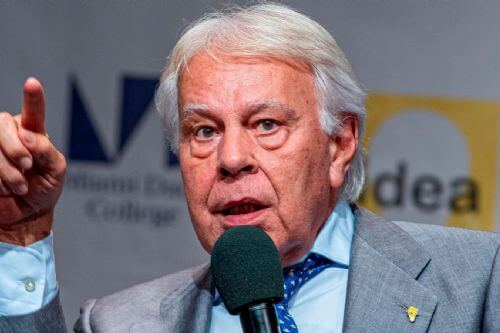Any European, even a citizen of Serbia since roughly 18 years ago, can seek justice before the European Court of Human Rights in Strasbourg. Many have already done so and received justice, which for various reasons could not be brought by the courts in their country. In order to come to court in Strasbourg, however, they had to fulfill one condition – that in the search for justice they had exhausted all possibilities with their domestic judiciary.
The court in Strasbourg is not a substitute for the courts in Serbia. You can’t go there for every lawsuit you lose or for a contract that isn’t honored. It is an important part of a good European democracy precisely because it forces all national courts to be as fair and efficient as possible. And that is why in Strasbourg, they solve only exceptions, those who are stuck somewhere in the crowded domestic judiciary.
Things are similar when they move to the level of politics. The European logic is such that it forces you to first solve all the problems you have in connection with democracy on your own, in your own country. Just as there are many more appeals in the Strasbourg court than accepted cases, there are many more demands before the EU to “force” democracy than it fulfills.
Felipe González’s mission in Serbia in 1997 was one of the rare exceptions when Europe was engaged to solve an internal political problem in Serbia. It was a precedent, but it rightly did not grow into practice. The legendary leader of the Spanish Socialists came to Serbia to solve an unprecedented, brutal electoral fraud, at the invitation of hundreds of thousands of people who sought justice on the streets for three months, day and night. The next time Milošević tried to steal the election, three years later, no one called González anymore. For Milošević, it was the last theft in his career.
Even today, part of the opposition in Serbia expects to get a new Felipe González from Europe and, under his pressure, another electoral “lex specialis”, which will give it power. That is the essence of the decision of Đilas and Jeremić to boycott the talks with the Serbian authorities about the election conditions and to talk about it only with the Europeans. But González will not appear in Belgrade this time. Europe will not send him, because today’s “litigation” has nothing in common with the one from 24 years ago. Especially the main one, that the mission of Felipe González was post-election, and today the pre-election intervention of Europe is required.
Nobody in Europe understood last year’s Đilas’, Jeremić’s, Obradović’s boycott of the elections. They said that in the annual report of the European Commission, and especially clearly in the March resolution of the European Parliament. This was also said by the rapporteur Vladimír Bilčík, immediately after last year’s elections, when he marked the parliament and the parties that participate in its work as his main interlocutors in Belgrade. The attempt to internationalize the issue of election conditions in Serbia, which the boycott-opposition has been doing for almost two years, is legitimate, but it is completely wrong politically and ethically miserable.
Some political issues have a charge of being internationalized. So much so that any other solution is impossible. Kosovo, for example, or the referendum on Montenegro’s independence or the crisis in Donbas. And can a request for changing the editor on RTS and giving a national frequency to some, for now unnamed, television really enter that league of “heavyweights”? These are the capital demands of that part of the Serbian opposition, whose strength we do not know yet, nor do they want us to know it, because the magic would then disappear.
Vuk Drašković asked for the same thing that boycotters are asking for 30 years ago, but it never occurred to him to cry for help from Europe, because he knew it was homework. He gathered hundreds of thousands of angry oppositionists in the center of Belgrade, took them to the “Bastille” and forced Milošević to make concessions. No similarities with today’s situation. Neither Đilas nor his partners are Vuk, their supporters are not numbered in the hundreds of thousands, and especially Vučić is not Milošević.
The boycott of the intra-Serbian dialogue is an expression of contempt for all other oppositionists who come to the talks with Vučić and Dačić. They are not the “real” opposition. It is a depreciation of all other authentic, say, Bosniak parties and their leaders, Ljajić and Zukorlić, for example. If they are part of the ruling bloc, does that mean that they are not true representatives of Bosniaks, but it is, I guess, only Sulejman Ugljanin because only he seeks the internationalization of the Bosniak issue in Serbia. Not always, of course, but only when he is not in power. MEPs come to Belgrade and talk to everyone who wants to. But their mission is unattainably far from the internationalization that the boycott bloc wants. Europeans do not want such internationalization, it is simply not their job, nor their desire. They are part of the dialogue, but they are not its arbiter. They participate in this “litigation” as volunteer advisors, not as judges. As much as someone hoped for full internationalization and ran away from homework, the “verdict” is still reached only in elections.
